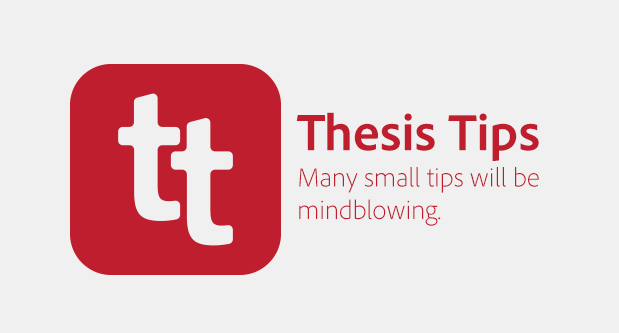Oral defense occurs towards the end of research journey. You have finished your thesis. Your advisor is happy with it. Your committee may or may not have approved it depending on your program. Now, you have to stand up in front of everyone else. They are people you might or might not have known before the defense. Your task is to show what you have done. Your task is to provide evidence that you are an expert in the thesis or dissertation topic. You did it, not someone else. As a result, you can handle any question in this field of study. You will be able to discuss every part of it and show you knew what you were doing. The objective of the defense is to prove you are an expert in your thesis topic.
How do you prepare for the defense? You need to prepare a short presentation that will be discussed in the following section. This presentation needs to be easy, clear, understandable, and short. Make sure you get to the point that highlights your research journey. It should provide evidence that you know the topic well, and you can smoothly explain what you did in your research. You also need to be able to discuss the findings and conclusions. More importantly, you should be able to answer questions from the committee.
What will the committee ask you in your defense? Many questions can come up in your defense. The best way to prepare for it is to make a good thesis at the beginning. If you do not know what you are doing, then it is difficult or impossible to prepare for the defense. However, most programs and advisors will not let that happen.
Common Oral Defense comments
If you break the questions into categories, they will be as follows:
- Technical Questions: These will be issues with your thesis writing style, formatting, numbering, tables, figures, missing pages, authors, or paragraphs.
- Literature Questions: “Did you check the findings of Author X?” This is a very difficult question if you’ve excluded the research of a key player in your research topic. You cannot talk credibly about certain topics without knowing its key contributors. Make sure to follow your model journal article and its references.
- Methodology Questions: These questions check your measurement tool reliability. Did your survey measure the different variables effectively? It can also include questions about sample issues including size, selection, representation, pilot study, participants, etc. Make sure you understand your methodology, and why you used it.
- Analysis Questions: “You mentioned ‘X’, but why is that a factor?” These questions occur when you focus too much on the trees and you miss the forest. If your analysis is too long, and you repeat it too much, you will fall into this trap. Keep your analysis short, simple, and to the point. Nothing else.
- Conclusions Questions: “So if you were in this position, what would you do?” This can be a tricky question since the position described can be a real application of your study, yet the correct answer should come from your conclusions. It would be funny if you recommend doing things differently from what you advised in your thesis when facing this question.
- Generalization Questions: It is important your study generalization is explained in your defense, and will likely be challenged if you say it is generalized.
- Limitations Questions: Any weakness in your study becomes a limitation in the study. You have to be brave to show and discuss your study weaknesses. At the moment, you may feel that you did a poor job, but it is OK. In fact, it is purely normal. It is just an exercise.
- Reality Questions: Questions that have nothing to do with your research but rather has to do with the field of study in general. The person who asks you this question probably has some knowledge about the topic and wants to get your opinion.
Oral Defense Best Answers
What is the best answer in a defense? “That is a very important point. I will reflect it in my study.” During the defense, you will likely hear several common comments. For example, “This does not make sense.” “This needs to be changed.” “This is not accurate.” “This is not correct.” In each of these cases, you may clarify your opinion. Nevertheless, if you clarify your opinion once, and the other party does not buy it, then it is safe for you to say, “I will investigate and fix my thesis if necessary.”
During the defense, the committee wants you to graduate but before that, they want you to learn a bit more and the defense is their last chance to help you learn before you graduate. So give them that chance. Thank them for their contributions and help given since the beginning of the program.
When do people fail during the defense? The main reason is the failure to get your advisor’s OK. The committee may argue the advisor should fail you if you have misled him or her. The only reason you could fail that I can think of is an ethical violation. You just have to follow the rules.
Oral Defense Presentation
During your defense, you may be able to use a power point presentation to go over your thesis or dissertation. The program may already have a template that students ought to use for their presentation. If so, the template should include parts required by the program. Just fill it in.
It is suggested to keep the presentation short. Use short sentences or just keywords that remind you of what you will be talking about. You should sound like an expert in your presentation. You are expected to have memorized the name of the author of your model journal article. You should know the theory you are basing your study on inside out. You have memorized some of the key findings of your study. This is because you have spent a good time studying them.
Some of the facts you want to mention in your presentation include the reason for selecting the topic. What makes this topic relevant to you on a personal level? What surprised you during your research process? What findings did you not expect that emerged and what does it mean? Did that affect your research study?
Your responses should be short and in relation to your study. Do not overdo it. What you should overdo though is your methodology and data collection. At least half of your presentation should be discussing your work, not anyone else’s.
Oral Defense Templates
Based on most common presentation templates, you will have to do an introduction to your thesis, where you will tell the audience what is going to be covered in your presentation. Then you will provide background on your topic and conclude it with your problem statement. Next, you will need to discuss why your problem statement is important. Then you will provide the research questions. After that, you can talk about what others have done to answer these questions. Do not repeat your literature review. Just briefly highlight a few. Then get into what you did. As you discuss your methodology, your tools, and your techniques, you can also refer to the relevant literature review.
What you did in the research project is the most important part of your presentation. The audience wants to make sure that it is your work, and you understand what you did. The presentation should prove that well. 16
As you discuss your methodology, you will provide your findings and conclusions. In addition, you probably are going to include references from the literature. Do not worry if you go back and forth between the chapters. The objective is to show all of your work during your presentation time.
It is always good to have figures or graphs that contain a lot of information on one screen. It also serves well during the defense to have your findings on one slide. If you have lots of information, consider printing it and hanging it on flip charts for easy reference.
Oral Defense Techniques
Using flip charts offers a communication advantage during your defense. If your topic includes many similar components such as the analysis that generates different results, and the audience may be confused by which data belongs to which analysis, you may want to put each analysis on a separate flip chart. Therefore, they can point to the analysis they will discuss with you.
You may consider having every slide on a large piece of paper posted on the wall in order of your presentation. So, if someone asks you a question, you stand next to that post and discuss it. It also allows you to write on that slide, which may put an end to a comment brought by the committee. This also reduces confusion when you have to find a specific slide during the discussion.
Part of your presentation is to prepare for the defense. It is advisable to attend one before it’s your turn. Ask your advisor or your program coordinator how to attend a defense. It will motivate you and will provide valuable experience on what could be asked during yours. There are frequently asked questions during defense and they can be even more specific in your program. Different programs have a strategic plan for their program quality. Therefore, if you ask those before you about their experiences, there is a good chance you will get very similar, if not exactly the same common questions.
After your defense, you can celebrate with your family and friends. However, it is probably not the end of the journey. Sometimes, you are still not entitled to the degree. There is a good chance you will still have to address the comments by your committee. You will probably still have to consult with your advisor to see if you have fixed them properly and contact the committee to approve you for the degree.

